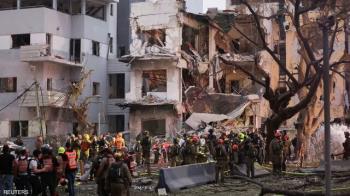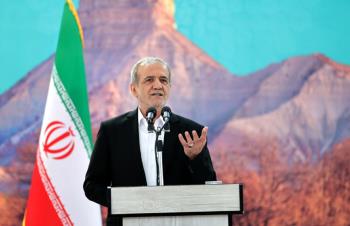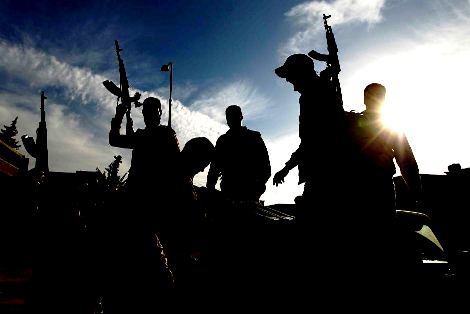Alwaght- Last February, the UN Security Council passed an important
Russian-sponsored resolution, Resolution 2199, aimed at tightening its
crackdown on financing terrorist groups, in Iraq and Syria, through illicit oil
sales, trading in antiquities and paying ransom for hostages.
The resolution calls for sanctions against individuals and
companies trading oil produced by the ISIS and other terrorist groups that
controls about a third of Syria and Iraq.
Moreover, the resolution also stress that it is illegal to pay ransom to
individuals and groups, such as ISIS and Jabhat al-Nusra, that are already
subject to UN sanctions, and that all countries are required to freeze such
funds.
Russia's UN Ambassador Vitaly Churkin considered the resolution as
"an important step in suppressing funding of terrorists." Additionally, both Syria and Iraq welcomed
the adoption of the resolution.
"This is the most comprehensive resolution addressing the issue of
terrorism," Syria's UN Ambassador Bashar Jaafari told reporters.
Previously, the UN Security council adopted a resolution following
the attacks of 9/11 in the US. The
earliest resolution banned all countries from financially and military
supporting terrorists. Additionally, it
ordered sanctions against terrorist group, such as Al Qaeda, as well as
prohibited ransom payments to these groups.
The resolution of 2011 also required nations to bar their citizens from
traveling abroad to join terrorist organizations.
Despite the resolution, evidences reveal that some countries agree to
pay ransom for the freedom of their citizens.
Other countries negotiate through an intermediary in order to release
their hostages. However, there is also a
third way of responding to taking hostages; small number of countries like the
US and England have adopted the use of Special Forces in rescue operations to
free their citizens.
In the current situation, with ISIS, adopting one of these three
strategies is considered an important issue.
Taking Hostages for reparation has become a favorite method among
terrorist groups around the world for financing their actions. In the recent hostage-taking cases,
journalists, aid workers and tourists were kidnapped and vast sums of money for
their release were requested. Such cases
attracted media’s attention; however, when native people were kidnapped the
media did not address their issue.
Terrorist groups such as Boko Haram and Al-Qaeda kidnapped local
officials and members of families to receive few thousand dollars.
In November, a UN panel of experts monitoring Al-Qaeda sanctions
confirmed that ISIS group received $35 million to $45 million in ransom
payments over the past year, and that kidnapping for ransom continues to
grow. According to the report, Al-Qaeda
in the Arabian Peninsula have received about $20 million in the years 2011 to
2013. It is no wonder then that Nasser
Al-Wuhaishi, the leader of the terrorist group considered hostage-taking in
2012 as one of the simplest acts of sabotage and as good business to finance
his terrorist group. Ayman al-Zawahiri
the successor of Osama Bin Laden urged his terrorist militants to take Western
hostages in order to fund their terrorist acts.
Paying ransoms is a controversial issue. Many analysts believe that paying ransoms in
response to kidnapping increases the ransoms as well as leads to the increase
of hostages cases. It can be said that
ransoms have increase by 50-fold over the past decade, reaching about $ 10
million for each hostage.
According to the experts involved in the kidnapping and ransom
cases, the main reason behind this significant increase of cases recently is
the intervention of governments. Under
normal conditions, negotiators try to reduce the amount of money demanded, and
with by increasing the number requested challenges also increase; because
drawing multi-million dollars from banks and moving them to a remote location
is considered complicated matter.
However, these obstacles are removed by the intervention of
governments. According to those experts,
multi-million dollars ransoms symbolizes the intervention of governments. Although some countries, such as the US and England,
adopted the “no payment” policy, other countries like Germany, Denmark, and
others have paid to release their hostages.
Since kidnappings have increased recently more than ever, it is
time now to consider new policies with specific ways to deal with terrorist
groups. The US has more options than any
other country. In many cases, the US has
sent Special Forces to rescue its hostages, but other countries do not have such
facilities.
Generally, undoubtedly the payment of ransoms by some foreign
countries have led to an increase in kidnappings by terrorist groups. On the other hand, the problem is that when
native citizens are held hostages, is the refusal to pay ransoms to save them
is considered a courageous act in the context of their fight against terrorism,
or is it a sign of the government’s barbarity?



























